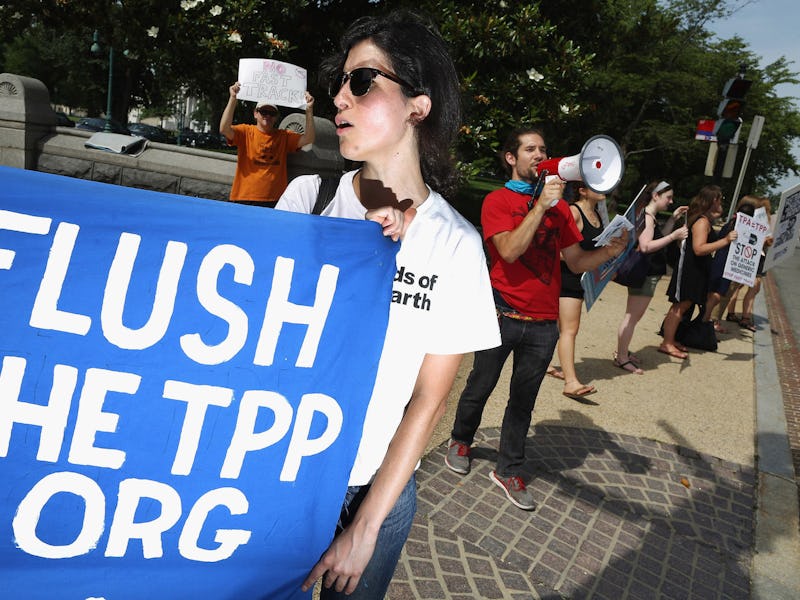Intellectual Property Chapter in Trans-Pacific Partnership Leaked
Consumer advocates fear pharmaceutical groups will use regulations to squash competition.

Wikileaks has spilled a final draft of Intellectual Property Rights chapter of the Trans-Pacific Partnership agreement, stoking fears for critics of the controversial deal, who say its regulations will effect everything from civil liberties to internet service.
The free trade agreement’s supporters in 12 nations say it will lower trade barriers and help create common standards, especially for intellectual property and environmental laws. But the secrecy surrounding TPP has attracted scrutiny from critics like Hillary Clinton and Bernie Sanders, who said of the deal: “It’s time for the rest of us to stop letting multinational corporations rig the system to pad their profits at our expense.”
Critical groups have found little to soothe them in early analysis of the leak, claiming that patent and data protections will be used by pharmaceutical companies to stave off generic competition.
“The text of the TPP’s intellectual property chapter confirms advocates’ warnings that this deal poses a grave threat to global freedom of expression and basic access to things like medicine and information,” said Evan Greer, campaign director for the digital rights group Fight for the Future, in an FFF press release on the leak. “The contents of the TPP’s IP chapter were bought and paid for by Hollywood and the pharmaceutical industry before the negotiations even began.”
Peter Maybarduk, Public Citizen’s Global Access to Medicines Program Director, was also struck by the medical ramifications.
“If TPP is ratified, people in the Pacific-Rim countries would have to live by the rules in this leaked text,” Maybarduk tells Telesurf. “The new monopoly rights for big pharmaceutical firms would compromise access to medicines in TPP countries. The TPP would cost lives.”
Keep in mind this is just one chapter. The majority of the text is still being kept on lockdown until after partner nation Canada’s Oct. 19 elections.